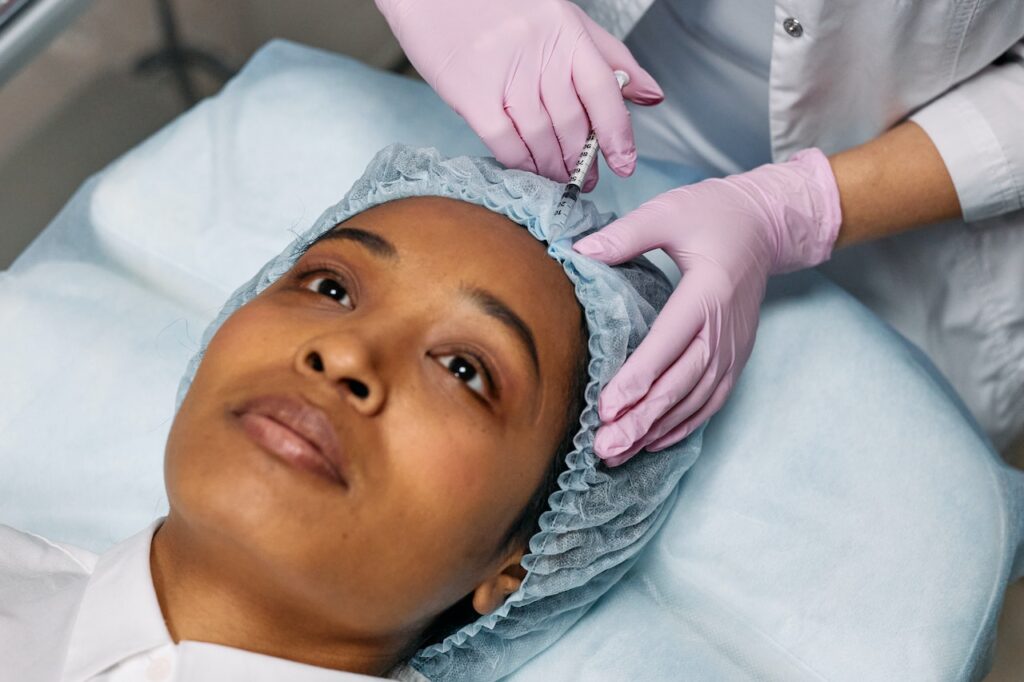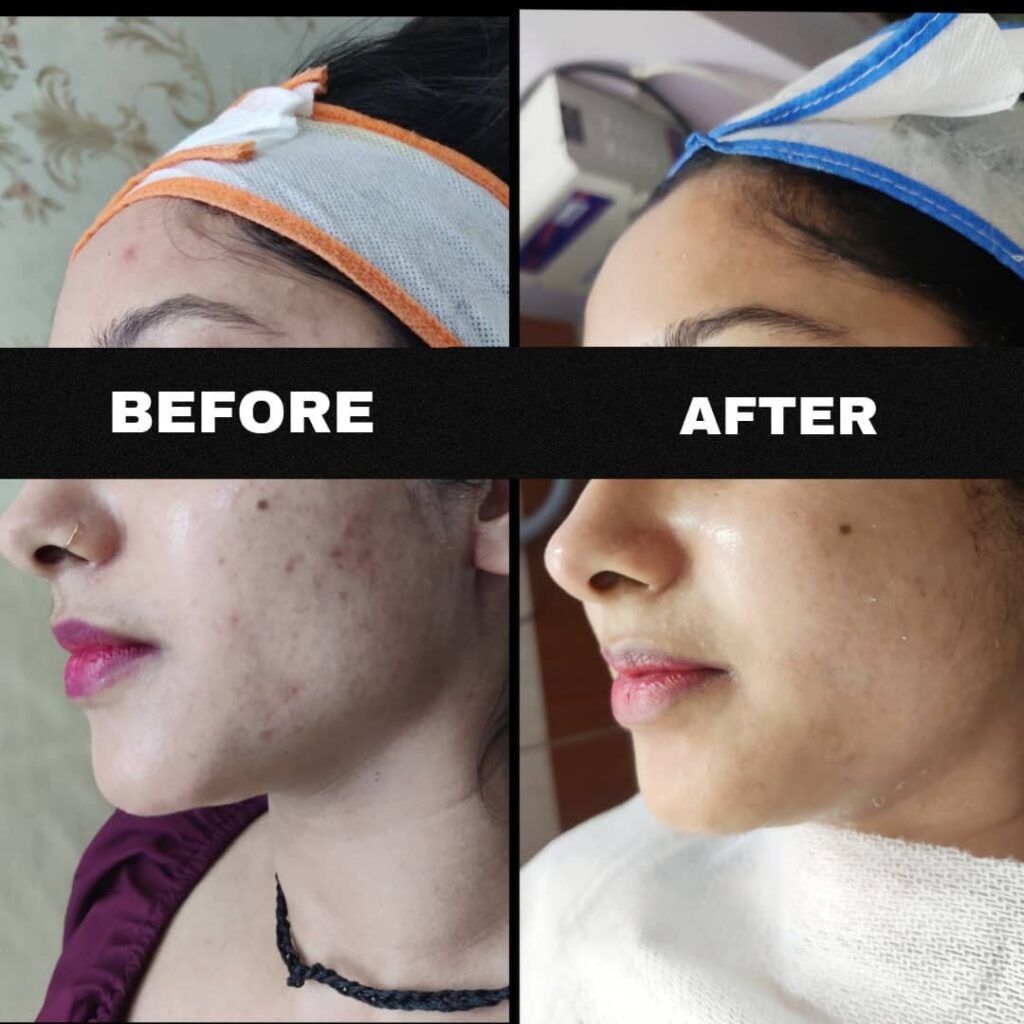Table of Contents
Dermatologists play a crucial role in promoting skin health and overall well-being. Dermatology is a specialized field that focuses on diagnosing and treating diseases and conditions affecting the skin, hair, nails, and mucus membranes. With their extensive knowledge and training, dermatologists provide essential care and expertise in maintaining optimal skin health.
The skin, being the largest and heaviest organ of the body, serves several vital functions. It acts as a protective barrier against external factors such as heat, cold, germs, and harmful substances. Moreover, the condition of the skin can serve as an indicator of an individual’s overall health. Changes in skin color, texture, or appearance can often be early signs of underlying medical issues. Thus, it is crucial to prioritize proper skin care and be aware of its overall health.
Dermatologists are medical doctors who specialize in the care of the skin, hair, and nails. They possess comprehensive knowledge of various dermatological conditions and are equipped to diagnose and treat a wide range of skin diseases. Furthermore, dermatologists are skilled in managing cosmetic concerns, including hair loss and scars, to enhance patients’ self-esteem and quality of life.
By understanding the importance of skin health and the role of dermatologists, individuals can seek appropriate care and guidance to maintain healthy skin and address any skin-related concerns they may have. In the following sections, we will delve deeper into the responsibilities and expertise of dermatologists, shedding light on their vital contributions to skin care and overall well-being.
What is a Dermatologist?
Definition and specialization of dermatologists

Dermatologists are highly trained medical professionals who specialize in the diagnosis, treatment, and management of diseases and conditions related to the skin, hair, nails, and mucus membranes.
They possess in-depth knowledge of the structure and function of the skin, as well as the underlying causes and mechanisms of various dermatological disorders.
Dermatology is a specialized branch of medicine that requires extensive education, training, and clinical experience to effectively address the diverse range of conditions that can affect the integumentary system.
Expertise in caring for skin, hair, and nails

One of the primary responsibilities of dermatologists is to provide comprehensive care for the skin, hair, and nails.
They are skilled in identifying and diagnosing a wide spectrum of dermatological conditions, ranging from common issues such as acne, eczema, and psoriasis to complex diseases like skin cancer and autoimmune disorders.
Dermatologists utilize their expertise to develop personalized treatment plans that may include medications, topical creams, oral therapies, or minimally invasive procedures to effectively manage these conditions.
Dermatologists also play a crucial role in preventive care, emphasizing the importance of sun protection, skincare routines, and healthy lifestyle practices to maintain optimal skin health. They provide guidance on proper skincare products, recommend strategies for managing specific skin concerns, and offer advice on maintaining healthy hair and nails.
Management of cosmetic disorders
In addition to diagnosing and treating medical dermatological conditions, dermatologists are proficient in managing cosmetic disorders. These may include concerns related to aging, such as fine lines, wrinkles, and age spots, as well as issues like hair loss, unwanted hair growth, and scarring.
Dermatologists employ various cosmetic procedures and techniques to address these concerns, such as chemical peels, laser therapies, dermal fillers, and botulinum toxin injections. They strive to enhance patients’ appearance while prioritizing safety, natural results, and individualized treatment plans.
Through their extensive knowledge and expertise, dermatologists provide comprehensive care for the integumentary system.
They are at the forefront of advancements in dermatology, staying updated with the latest research and techniques to offer their patients the best possible outcomes. By addressing both medical and cosmetic concerns, dermatologists contribute to the overall well-being and confidence of their patients, helping them achieve healthier skin, hair, and nails.
Scope of Practice
Diagnosis and treatment of skin conditions
Dermatologists are experts in diagnosing and treating a wide range of skin conditions. They possess a deep understanding of the various dermatological diseases, including but not limited to acne, dermatitis, psoriasis, eczema, fungal infections, skin allergies, and autoimmune disorders. Using their clinical knowledge and diagnostic skills, dermatologists thoroughly assess patients’ symptoms, conduct physical examinations, and may also order laboratory tests or biopsies to establish an accurate diagnosis.
Once a diagnosis is made, dermatologists develop personalized treatment plans tailored to each patient’s specific condition. These treatment options may include prescribing medications, topical creams or ointments, oral therapies, or recommending lifestyle modifications to manage the condition effectively. Dermatologists continually monitor the progress of their patients, adjusting treatment plans as necessary to achieve optimal outcomes.
Recognition of symptoms indicating internal health issues
The skin often serves as a window to internal health, and dermatologists are trained to recognize symptoms and signs that may indicate underlying systemic conditions. For example, certain skin manifestations can be early indicators of internal organ diseases, hormonal imbalances, or immune system disorders. By thoroughly evaluating a patient’s skin, dermatologists may identify clues that prompt further investigation into potential underlying health issues.
Through their expertise, dermatologists can initiate appropriate diagnostic tests or collaborate with other medical specialists to facilitate a comprehensive evaluation of the patient’s overall health. Early identification of these internal health issues allows for timely intervention and management, leading to improved patient outcomes.
Specialized diagnostic procedures related to skin conditions
Dermatologists are skilled in performing specialized diagnostic procedures related to skin conditions. These procedures may include skin biopsies, which involve the extraction and examination of skin tissue samples under a microscope to aid in diagnosing various skin disorders. Additionally, dermatologists may perform dermatoscopy, a non-invasive technique that uses a magnifying instrument to examine skin lesions and moles in detail, aiding in the early detection of skin cancer.
In some cases, dermatologists may use advanced diagnostic tools such as dermal imaging, digital mole mapping, or genetic testing to assist in diagnosing and managing specific skin conditions. These specialized procedures enable dermatologists to gather valuable information about the nature and progression of dermatological diseases, facilitating accurate diagnoses and guiding appropriate treatment strategies.
By utilizing their extensive training and specialized diagnostic procedures, dermatologists offer comprehensive care for their patients, addressing both the visible skin conditions and potential underlying health issues. Their expertise plays a vital role in promoting early detection, effective treatment, and overall well-being for individuals with dermatological concerns.
Also Read: Difference between dermatologist and esthetician
Training and Qualifications
Educational requirements for becoming a dermatologist
To pursue a career in dermatology in India, individuals must first complete their bachelor’s degree in medicine (MBBS), which typically takes five and a half years, including a one-year mandatory internship. During this undergraduate program, students study core medical subjects and gain a solid foundation in medical knowledge.
Residency and fellowship programs
After completing their MBBS, aspiring dermatologists must undertake a postgraduate residency program in dermatology. The residency program in dermatology, also known as a Doctor of Medicine (MD) or Diploma in Dermatology, typically lasts for three years. During this period, residents receive specialized training in dermatology, gaining hands-on experience in diagnosing and treating various skin conditions. They rotate through different clinical settings, engage in academic activities, and participate in research projects to deepen their understanding of dermatological principles and practices.
Following the completion of the residency program, dermatologists in India have the option to pursue additional fellowship training to further specialize in specific subspecialties of dermatology. Fellowship programs provide focused training and expertise in areas such as dermatopathology, dermatosurgery, pediatric dermatology, and cosmetic dermatology. These fellowship programs vary in duration, ranging from six months to two years, depending on the chosen subspecialty.
Licensing and certification
To practice as a dermatologist in India, individuals must obtain a medical license from the Medical Council of India (MCI) or the respective state medical council. Licensing involves passing the appropriate licensing examination, such as the Foreign Medical Graduates Examination (FMGE) or the All India Post Graduate Medical Entrance Examination (AI-PGMEE).
While board certification is not mandatory in India, many dermatologists choose to pursue additional certification from professional bodies such as the National Board of Examinations (NBE) or the Indian Association of Dermatologists, Venereologists, and Leprologists (IADVL). These certifications serve as recognition of the dermatologist’s expertise and commitment to maintaining the highest standards of professional competence.
Continuing medical education (CME) is highly encouraged in India to stay updated with the latest advancements in dermatology. Dermatologists actively participate in national and international conferences, workshops, and scientific meetings to enhance their knowledge and skills.
By completing the required education, residency, and fellowship programs, as well as obtaining the necessary licenses, dermatologists in India acquire the training and qualifications essential to provide specialized care to patients with dermatological concerns. Their continuous pursuit of knowledge and participation in professional development activities ensure that they stay at the forefront of dermatology, delivering quality care to patients in India.
Also Read: Difference Between Dermatologist and Skin Specialist
Common Conditions Treated by Dermatologists
Dermatologists in India encounter a wide range of dermatological conditions in their practice. Here are some of the common conditions they diagnose and treat:
Acne

Acne is a common skin condition characterized by pimples, blackheads, and whiteheads. Dermatologists provide various treatment options, including topical medications, oral medications, and procedures such as chemical peels or laser therapy, to manage and improve acne.
Eczema
Eczema, also known as atopic dermatitis, is a chronic inflammatory skin condition that leads to itchy, dry, and red patches on the skin. Dermatologists prescribe topical corticosteroids, moisturizers, and advise on lifestyle modifications to alleviate eczema symptoms and prevent flare-ups.
Hair loss
Hair loss can result from various causes, including genetic factors, hormonal changes, nutritional deficiencies, or underlying medical conditions. Dermatologists evaluate the cause of hair loss and offer treatments such as topical medications, oral medications, PRP (Platelet-Rich Plasma) therapy, or hair transplantation, depending on the specific needs of the patient.
Nail fungus
Nail fungus, or onychomycosis, is a common condition characterized by thickened, discolored, and brittle nails. Dermatologists diagnose nail fungus through clinical examination and may prescribe oral antifungal medications, topical treatments, or recommend laser therapy to treat the infection and restore nail health.
Psoriasis
Psoriasis is a chronic autoimmune skin condition that causes red, scaly patches on the skin. Dermatologists develop individualized treatment plans for psoriasis patients, which may include topical treatments, oral medications, phototherapy, or biologic therapies to manage the symptoms and prevent flare-ups.
Skin cancer
Dermatologists play a critical role in the early detection and treatment of skin cancer. They conduct thorough skin examinations, perform biopsies when necessary, and employ surgical interventions, such as excisions or Mohs surgery, to remove cancerous skin lesions. Dermatologists also provide education on sun protection and perform regular skin cancer screenings.
Rosacea
Rosacea is a chronic inflammatory skin condition characterized by facial redness, visible blood vessels, and sometimes, small bumps. Dermatologists offer a range of treatments, including topical medications, oral medications, laser therapy, and lifestyle modifications, to manage and control rosacea symptoms.
Hyperpigmentation
Hyperpigmentation refers to dark patches or spots on the skin, often caused by sun exposure, hormonal changes, or skin inflammation. Dermatologists may recommend treatments such as topical depigmenting agents (e.g., hydroquinone, kojic acid), chemical peels, microdermabrasion, or laser therapy to reduce hyperpigmentation and even out the skin tone.
Wrinkles and Fine Lines
Dermatologists offer several anti-aging treatments to minimize the appearance of wrinkles and fine lines. These treatments may include topical retinoids, botulinum toxin injections (e.g., Botox), dermal fillers (e.g., hyaluronic acid fillers), chemical peels, microdermabrasion, or laser resurfacing.
Scar Management
Dermatologists employ various techniques to manage scars resulting from acne, injuries, surgeries, or other skin conditions. Treatment options may include topical silicone gels or sheets, corticosteroid injections, dermabrasion, chemical peels, microneedling, laser therapy, or surgical scar revision.
In addition to these conditions, dermatologists in India also address other skin concerns such as allergic reactions, hives, fungal infections, vitiligo, dermatitis, and more. By accurately diagnosing and effectively treating these common dermatological conditions, dermatologists strive to improve the overall skin health and quality of life for their patients in India.
Also Read: 14 Hair Care Myths Debunked by a Dermatologist
Procedures Performed by Dermatologists
Dermatologists in India are trained in performing various procedures to diagnose, treat, and manage dermatological conditions. Here are some common procedures performed by dermatologists:
Electrosurgery
Electrosurgery involves the surgical use of a high-frequency electric current to cut, coagulate, or remove tissue. Dermatologists may utilize electrosurgery for procedures such as removing skin tags, warts, or benign lesions, as well as for electrodessication of certain skin growths.
Cryosurgery
Cryosurgery involves the use of extreme cold, typically using liquid nitrogen, to freeze and destroy abnormal or unwanted tissue. Dermatologists commonly employ cryosurgery to treat conditions like warts, actinic keratoses (precancerous skin lesions), and some types of skin cancers.
Laser surgery
Dermatologists use laser surgery for various purposes, including skin resurfacing, tattoo removal, scar reduction, hair removal, and treatment of vascular lesions like birthmarks or spider veins. Different types of lasers are employed depending on the specific condition being treated.
Excision surgery
Excision surgery involves the removal of tissue using a scalpel or surgical instrument. Dermatologists may perform excision surgery to remove skin cancers, suspicious moles, cysts, lipomas, or other benign or malignant growths. The excised tissue is sent for further examination to ensure complete removal.
Mohs surgery
Mohs surgery is a specialized surgical technique used primarily for the treatment of skin cancer, especially those with high-risk or recurrent lesions. Dermatologists trained in Mohs surgery perform the procedure, which involves removing layers of cancerous tissue and examining them under a microscope in real-time. This allows for precise removal of cancerous cells while preserving healthy tissue.
Mole removal
Dermatologists perform mole removal for diagnostic purposes or if the mole is suspicious, changing, or causing discomfort. The procedure typically involves excision or shave removal, depending on the characteristics of the mole. The removed tissue may be sent for histopathological examination to determine if it is benign or requires further treatment.
Vein treatment
Dermatologists offer various treatments for spider veins and varicose veins. Sclerotherapy is a common procedure in which a solution is injected into the veins, causing them to collapse and fade over time. Laser therapy may also be used to treat smaller spider veins.
These procedures, performed by skilled dermatologists in India, contribute to the accurate diagnosis, effective treatment, and management of dermatological conditions. It is important for patients to consult with their dermatologist to determine the most appropriate procedure for their specific condition.
Also Read: Our Skin & Hair Treatments in Noida
Dermatology Subspecialty Fields
Dermatology encompasses various subspecialty fields, allowing dermatologists to focus on specific areas of expertise. Here are some prominent subspecialty fields within dermatology:
Dermatopathology
Dermatopathology is the subspecialty that combines dermatology and pathology. Dermatopathologists specialize in diagnosing skin diseases through the examination of skin tissue samples under a microscope. They play a critical role in identifying the histological features and patterns associated with various skin conditions, aiding in accurate diagnoses and treatment decisions.
Mohs surgery
Mohs surgery is a highly specialized technique used for the precise removal of skin cancer, particularly for complex or recurrent cases. Dermatologists trained in Mohs surgery act as both surgeons and pathologists, removing cancerous tissue layer by layer and examining it immediately under a microscope. This meticulous process allows for the highest cure rates while minimizing damage to healthy tissue.
Pediatric dermatology
Pediatric dermatology focuses on the diagnosis and management of skin conditions specific to infants, children, and adolescents. Pediatric dermatologists have expertise in recognizing and treating a wide range of skin disorders commonly seen in the pediatric population, including eczema, birthmarks, genetic skin disorders, acne, and infections. They provide specialized care tailored to the unique needs of young patients, considering factors such as growth, development, and emotional well-being.
Cosmetic dermatology
Cosmetic dermatology involves the enhancement and rejuvenation of the skin’s appearance through various non-surgical procedures. Cosmetic dermatologists offer a wide range of treatments, including injectables (such as botulinum toxin and dermal fillers), chemical peels, laser therapies, microdermabrasion, and other aesthetic procedures. They focus on improving skin texture, reducing wrinkles, addressing hyperpigmentation, and managing other cosmetic concerns to help patients achieve their desired aesthetic goals.
These subspecialties within dermatology demonstrate the depth and breadth of the field, allowing dermatologists to specialize in specific areas of interest and provide specialized care to patients with unique dermatological needs. Dermatologists may choose to pursue additional training and certification in these subspecialties to expand their knowledge and expertise.
When to Make an Appointment with a Dermatologist
Common symptoms that warrant a dermatologist visit
There are several symptoms and conditions that indicate the need for a dermatologist’s evaluation and expertise. It is advisable to make an appointment with a dermatologist if you experience:
- Skin changes: Any unusual changes in the skin, such as new or changing moles, growths, or spots that appear suspicious or concerning.
- Persistent acne: If over-the-counter acne treatments haven’t been effective in managing acne or if you have severe or persistent acne that is impacting your self-esteem or quality of life.
- Chronic skin conditions: Conditions such as eczema, psoriasis, or rosacea that require ongoing management and treatment.
- Hair and scalp issues: Excessive hair loss, scalp conditions, or changes in hair growth patterns that are concerning or affecting your confidence.
- Nail problems: Persistent nail infections, discoloration, thickening, or other nail abnormalities that require diagnosis and treatment.
- Skin infections: Skin infections like fungal infections, cellulitis, or impetigo that do not respond to over-the-counter treatments or keep recurring.
- Skin allergies: Allergic reactions or contact dermatitis that cause persistent itching, redness, swelling, or rash.
- Skin cancer concerns: Suspicion or concern about skin cancer due to changes in moles, new growths, or a personal or family history of skin cancer.
Importance of early detection and treatment
Early detection and timely treatment of dermatological conditions are crucial for optimal outcomes. Dermatologists are trained to identify subtle changes in the skin and recognize signs that may indicate underlying health issues. Early intervention can prevent the progression of skin conditions, improve treatment outcomes, and potentially save lives in the case of skin cancer.
Dermatologists play a vital role in diagnosing, treating, and managing a wide range of dermatological conditions. They possess the expertise to identify and address skin, hair, and nail concerns, ranging from common issues to complex medical conditions. Through their specialized training and knowledge, dermatologists provide personalized care to improve skin health and overall well-being.
Seeking professional care from a dermatologist is crucial for the accurate diagnosis, effective treatment, and management of dermatological conditions. Dermatologists are equipped with the knowledge, skills, and tools to provide comprehensive care, including early detection of skin cancer, management of chronic skin conditions, and guidance on maintaining optimal skin health.
Are you looking to revitalize your skin and reclaim its natural beauty? Look no further than Skin Rehab, your ultimate destination for comprehensive skin care and rejuvenation. Our team of expert dermatologists and skincare professionals are dedicated to providing you with personalized care and innovative treatments tailored to your unique needs.

“”Dr. Nidhi Paliwal, MBBS, MD( Dermatology), specializes in problems of skin, hair & various cosmetic issues. Her strong traits include passion to help and emotional endurance, she understands how deep dermatologic and cosmetic concerns can affect an individual and is always ready to work with the patients to bring out the best results. Doctor Nidhi Paliwal has presented many papers and posters at various national conferences and has also won awards for best paper presentation.”